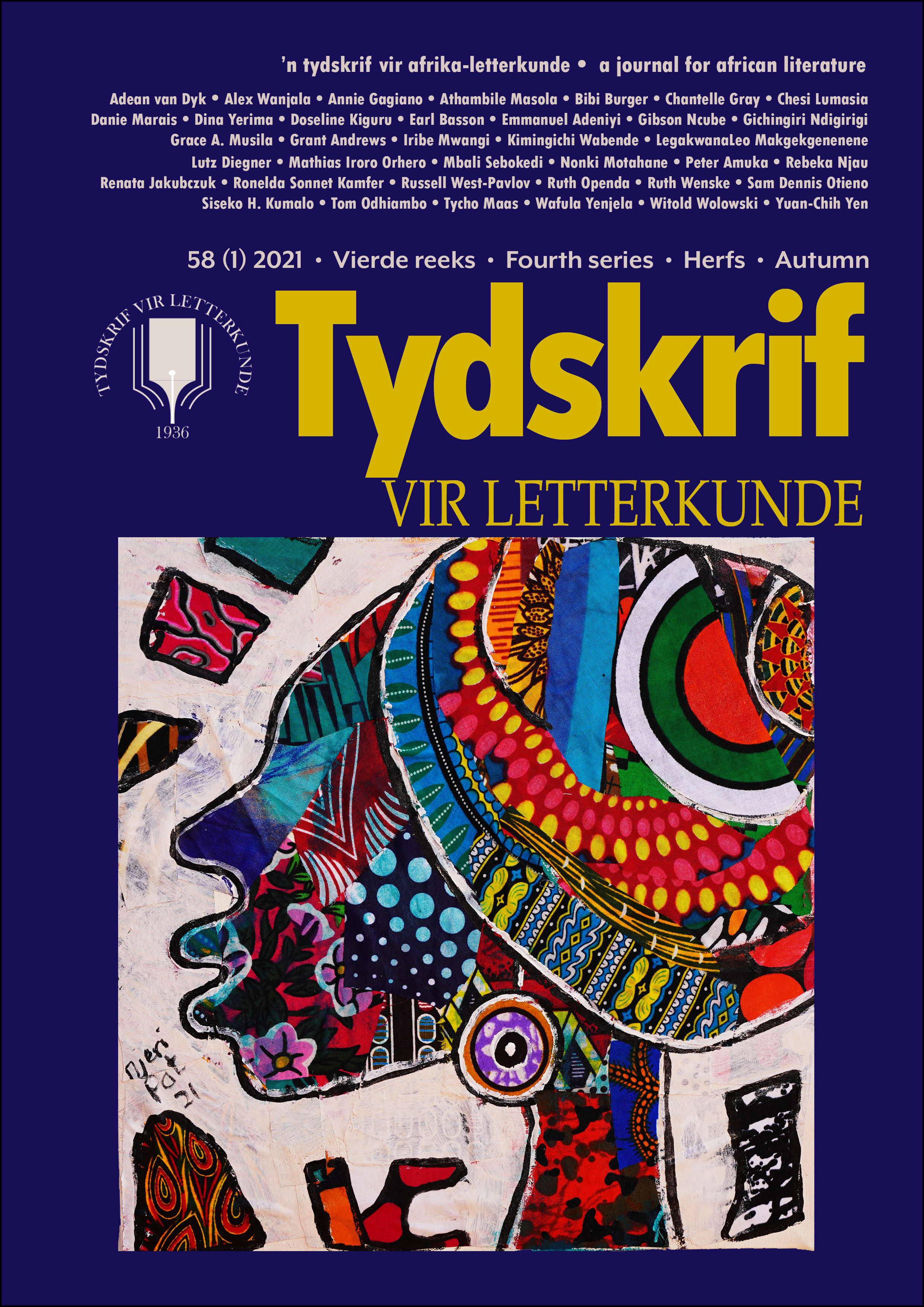Distinguishing between ontology and ‘decolonisation as praxis’
DOI :
https://doi.org/10.17159/tl.v58i1.10361Mots-clés :
indigenous languages, decolonisation, literature, philosophy, ontological recognitionRésumé
In this review article I closely read the recently published book African Philosophical and Literary Possibilities: Re-reading the Canon (2020), edited by Aretha Phiri. I suggest two ways of reading the text. The first levels a critique at some of the conflations we find in the text and the second showcases the useful takeaways that the reader gleans from the book. These takeaways are not—themselves—without criticisms, however. Such criticism is generative in that it shores up the work that still remains to be addressed by those working in the decolonial tradition, both here at home (i.e., in the South Africa academe) and further afield. In sum, I demonstrate that the objectives of decolonisation are clearly discernible when we apply ourselves to scholarship developed in the Indigenous languages of South Africa.
Téléchargements
Références
Coetzee, J. M. White Writing: On the Culture of Letters in South Africa. Yale U P, 1988.
Coetzee, J. M. Disgrace. Vintage, 1999.
Frassinelli, Pier P. & Lisa Treffry-Goatley. “Digital Media, Literacies, Literature and the African Humanities.” African Philosophical and Literary Possibilities: Re-reading the Canon, edited by Aretha Phiri. Rowman Littlefield, 2020, pp. 33–58.
Gqoba, William W. William Wellington Gqoba: Isizwe Esinembali: Xhosa Histories and Poetry (1873–1888), edited by Jeff Opland, Wandile Kuse & Pamela Maseko. UKZN P, 2015.
Hull, George. “Conflict and Compromise in Three Novels of the Eastern Cape.” African Philosophical and Literary Possibilities: Re-reading the Canon, edited by Aretha Phiri. Rowman Littlefield, 2020, pp. 33–58.
Jordan, A. C. The Wrath of the Ancestors (A Novel). Trans. A. C. Jordan & Priscilla P. Jordan. Lovedale, 1980.
Kumalo, Siseko H. “Curriculating from the Black Archive—Marginality as Novelty.” Critical Studies in Teaching and Learning vol. 8, no. 1, 2020, pp. 111–32. DOI: https://doi.org/10.14426/cristal.v8i1.252.
Kumalo, Siseko H. “Defining an African Vocabulary for the Exploration of Possibilities in Higher Education.” Alternation vol. 23, 2018, pp. 197–223. DOI: https://doi.org/10.29086/2519-5476/2018/sp23a9.
Kumalo, Siseko H., ed. Decolonisation as Democratisation: Global Insights into the South African Experience. HSRC, 2021.
Kunene, Mazisi. “Problems in African Literature.” Research in African Literatures vol. 23, no. 1, 1992, pp. 27–44.
Lange, Lis. “Rethinking Transformation and its Knowledge(s): The Case of South African Higher Education.” Critical Studies in Teaching and Learning (CriSTaL) vol. 2, no. 1, 2014, pp. 1–24. DOI: https://doi.org/10.14426/cristal.v2i1.24.
Mashile, Lebo. “Public Performance at the Newtown.” https://www.instagram.com/p/CMonf0tDVTB/.
Milazzo, Marzia. “‘The Whims of the White Masters:’ Miriam Tlali’s Between Two Worlds and the Totality of White Power.” African Philosophical and Literary Possibilities: Re-reading the Canon, edited by Aretha Phiri. Rowman Littlefield, 2020, pp. 131–48.
Mqhayi, S. E. K. Ityala Lamawele. Lovedale, 1914.
Ndlovu-Gatsheni, Sabelo J. Epistemic Freedom in Africa: Deprovincialization and Decolonization. Routledge, 2018.
Oyowe, Oritsegbubemi A. “Philosophy and an African Conscience.” African Philosophical and Literary Possibilities: Re-reading the Canon, edited by Aretha Phiri. Rowman Littlefield, 2020, pp. 1–16.
Phiri, Aretha, ed. African Philosophical and Literary Possibilities: Re-reading the Canon. Rowman Littlefield, 2020.
Tlali, Miriam. Between Two Worlds. Broadview, 2004.
Téléchargements
Publiée
Numéro
Rubrique
Licence
(c) Copyright Tydskrif vir Letterkunde 2021

Ce travail est disponible sous licence Creative Commons Attribution - Partage dans les Mêmes Conditions 4.0 International.


 https://orcid.org/0000-0001-6465-6584
https://orcid.org/0000-0001-6465-6584


.png)